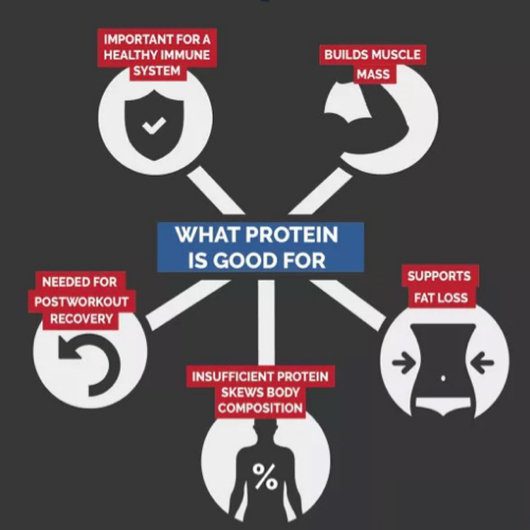We received a lot of queries around Protein like how much is too much, whether Protein consumption will impact our health etc.
Proteins are considered as building blocks of life. Every cell in the human body contains protein. You need protein in your diet to help your body repair cells and make new ones.
Protein is also important for growth and development in children, teens, and pregnant women.
You must have heard that:
The truth about protein is that it is misunderstood. Protein is an essential nutrient that plays a huge role in helping to keep you healthy and is essential to building muscle mass.
Protein actually plays a role in strengthening bones. And there is no evidence that a healthy person will get kidney damage from a typical high-protein diet.

Your kidneys are incredibly efficient at filtering unneeded substances from your body. Consuming a high protein diet doesn't increase the strain on your kidneys. The kidneys are built to handle exactly this sort of stress!
We always recommend increasing your water intake when you're consuming a higher quantity of protein, because your body produces more urine as a means to eliminate the byproducts of protein breakdown.
Extra fluid is needed to replace what is lost via urine. But you should be drinking plenty of water anyways.
Think about people who have donated a kidney. That one kidney left over suddenly has to handle more protein. If higher levels of protein damaged healthy kidneys, we would see it in donors.
But we don’t. That one kidney just adapts and donors have no increased risk for kidney disease.
The idea of protein leading to weaker bones comes from the fact that protein increases the acidity of the body, and that this causes calcium to leach from the bones to counteract it.
As per research, excess acidity has been found to lead to bone weakness, but protein is not the culprit.
As a matter of fact, protein in the diet has the opposite effect: it strengthens bones.
Now that we know Protein is really essential nutrient for all of us so, how much is needed?
FDA recommends 50 grams of protein per day for both men and women. This is a very general recommendation and isn’t accurate for people who are really active.
The amount of protein you need in your diet will depend on your overall calorie needs. The daily recommended intake of protein for healthy adults is 10% to 35% of your total calorie needs.
For example, a person on a 2000 calorie diet could eat 100 grams of protein, which would supply 20% of their total daily calories.
For people who work out, for athletes and trainers, more protein is necessary to build muscle and aid in recovery. It means that who is moderately to extremely active, 2 to 3 grams of protein per kilogram of bodyweight is a good general guideline.
However, it is recommended to take advice from Nutritionist before changing Protein intake, because it is very crucial to understand body fat percentage, daily activity level, and appropriate caloric ratio specific to their daily activity needs for protein, carbohydrates, and fat.
In case of any related query related to diet or weight loss book an appointment with Dt. Silky Mahajan please send us a mail at info@foodsandnutrition.in or call on 080 6741 7780 (Dial Extension: 778).
